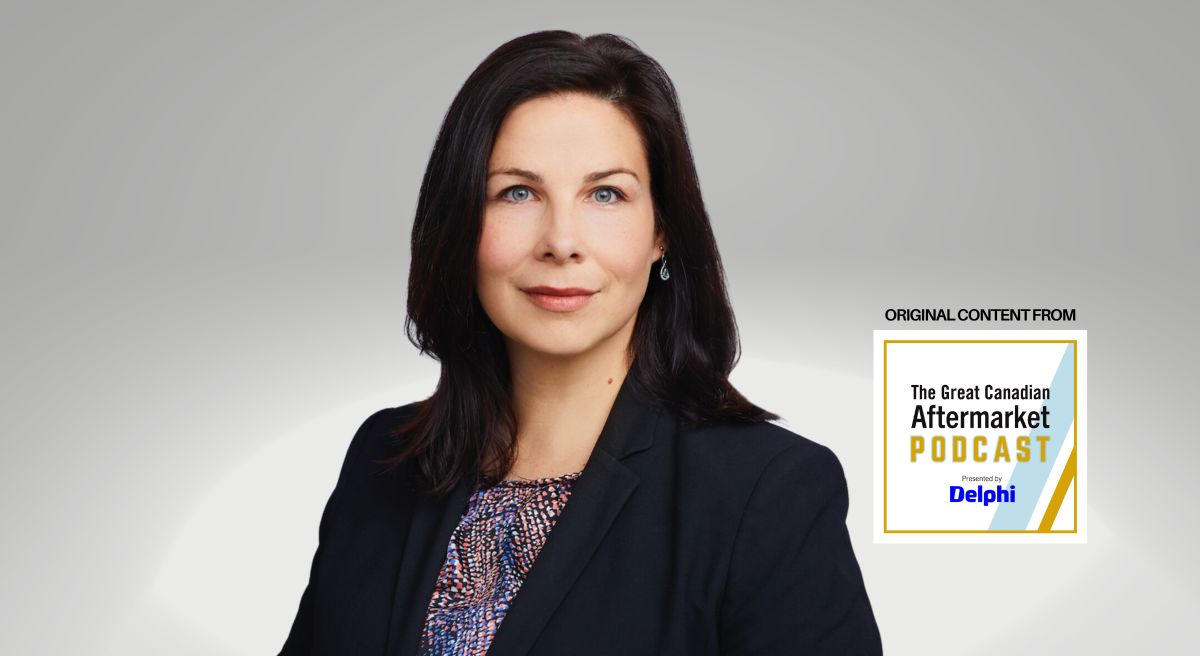The topic of diversity, equity, and inclusion, DEI, is one that we hear a lot about in the aftermarket and in the wider corporate world.
Industries at large, not just the aftermarket, and organizations large and small are aware of the conversations surrounding it.
We’re all in different places as far as where our organizations and ourselves are in thinking about how it fits with us and our lives and our worlds and our professional selves too.
But for Shannon Spano Vice President of Sales at Wakefield Canada and current chair of AIA Canada, it is a personal cause to drive forward the awareness, issues and benefits connected to what has become known as DEI.
“I see it on many dimensions. To kind of break it down at a very personal level or a human one-on-one level, and then talk about obviously organizational value. But I think at the core essentially, it’s just trying to understand unique and diverse perspectives with a goal of creating a deeper sense of belonging.
“So, whether it be a female in a male dominated industry, or an immigrant coming into Canada, it’s trying to understand all the different various perspectives that are at the table in terms of how they paint their own experiences. And so, a lot of it is conversational at the very core, and it’s really about trying to understand why things per are perceived differently, potentially, that there’s biases there that might be.
“We need to unpack and understand more and really try to celebrate and recognize why, again, diversity drives success.”
“On an organizational lecel and as an industry at large, there’s a high degree of conversations now about what high-performing cultures look like and high-performing teams and winning cultures and driving performance success and sustainability.
“And a lot of it is linked to the fact that you don’t need to all look the same, all have the same thoughts, especially as you’re facing such immense change and pivoting and adapting and evolving and pursuing growth. It’s really important that the depth and breadth of experiences around the table and perspectives actually help organizations thrive and survive. And so, I think DEI, to me, is very much a foundational part of business. It might not have been called DEI from years past before it had this brand and movement that has been getting a lot of traction in the last few years.”
A decade ago, companies surveyed employees to find out what engaged them, what made them connect with the organizations they worked for, she says, but it wasn’t put under the DEI umbrella that has, now, brought a cohesiveness to the conversation, but has brought something else too.
“Right now, that’s creating conversations that are, I would say, healthy and also there’s resistance. And that’s good. That just shows you that the conversation is evolving and getting out there which is the goal, I think, at the heart of it.”
Some of that resistance is pretty extreme. A recent professional social post from someone outside the aftermarket called DEI “a cultural poison pill designed to create the greatest amount of resentment and animosity inside an organization.”
Spano admits that extreme type of sentiment does upset her, but says too that it’s important to get past that initial reaction and try to understand that this anti-DEI view comes from a place of someone feeling threatened, and to ask “Why?”
It’s about having convesations with those who are resistant to the idea and see where that takes you.
Spano says that she finds it helpful to take a long view.
“We are making progress, but there’s more work to happen. And that’s the beauty of movement and advocacy. And at a time where the industry and the aftermarket are going through such change and disruption and challenge, it always creates opportunity. And I think the best thing we can do collectively as a community is try to promote, again, the amazing diversity in this industry.
“Those are the kinds of conversations that I’m having; less about this movement is to place blame or labeling of something of the past, but more about how do we create a progressive future and how do we make sure we really understand each other.
“When there’s equal access or more opportunities, or just a sense of belonging to a community within organizations to drive common goals, all of those things have tremendous business value. And at a personal level, I think just recognizing different cultures and diverse thinking is actually just really create a deeper sense of belonging.”
The preceding is excerpted from The Great Canadian Aftermarket Podcast episode “DEI and the Aftermarket: An Honest Conversation” featuring guest Shannon Spano, chair of AIA Canada, and host Andrew Ross. Listen to the whole conversation HERE.


0 Comments